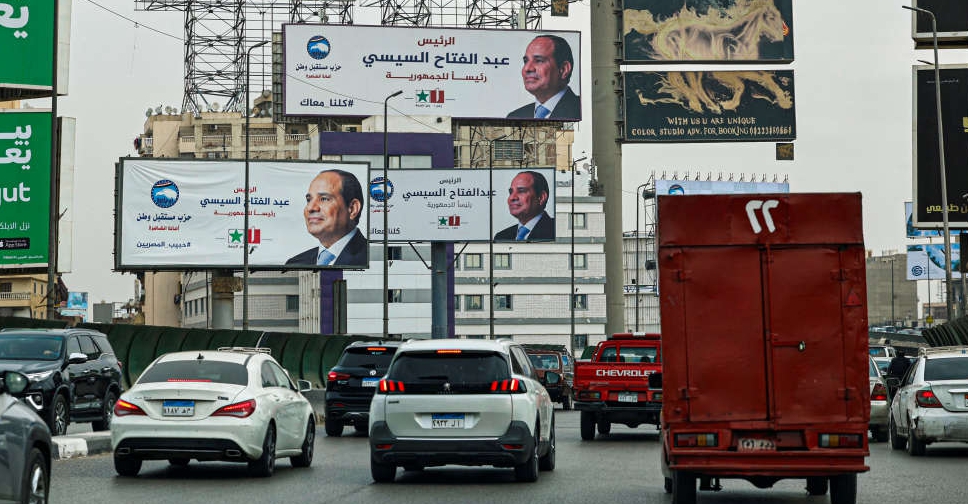
Egyptians head to the polls on Sunday for a presidential election in which Abdel Fattah al-Sisi is poised to win a third term in power as the country grapples with an economic crisis and a war on its border with Gaza.
Victory would hand Sisi a six-year term in which immediate priorities would be taming near-record inflation, managing a chronic foreign currency shortage and preventing spillover from the conflict between Israel and Gaza's Hamas rulers.
Voting, which runs from 9:00 am until 9:00 pm (0700-1900 GMT), is spread over three days, with results due to be announced on December 18.
Critics see the election as a sham after a decade-long crackdown on dissent. The government's media body has called it a step towards political pluralism.
Three candidates qualified to stand against Sisi in the election, none of them high-profile figures. The most prominent potential challenger halted his run in October, saying officials and thugs had targeted his supporters - accusations dismissed by the national election authority.
Authorities and commentators on tightly controlled local media have been urging Egyptians to turn out to vote, though some people said they were unaware when the election was taking place in the days before the poll. Others said voting would make little difference.
As army chief, Sisi led the 2013 ouster of Egypt's first democratically elected president Mohamed Mursi before being elected to the presidency the following year with 97 per cent of the vote.
Sisi and his backers say the crackdown was needed to stabilise Egypt and counter Islamist extremism. He has presented himself as a bulwark of stability as conflict has erupted on Egypt's borders in Libya, and earlier this year in Sudan and Gaza.

 UK inquiry finds 'chilling' cover-up of infected blood scandal
UK inquiry finds 'chilling' cover-up of infected blood scandal
 Iranian President Raisi killed in helicopter accident, state media says
Iranian President Raisi killed in helicopter accident, state media says
 ICC prosecutor seeks arrest warrants for Israeli, Hamas leaders
ICC prosecutor seeks arrest warrants for Israeli, Hamas leaders
 Assange given permission to appeal against US extradition
Assange given permission to appeal against US extradition
 Israel intends to broaden Rafah sweep, Defence Minister tells US
Israel intends to broaden Rafah sweep, Defence Minister tells US




